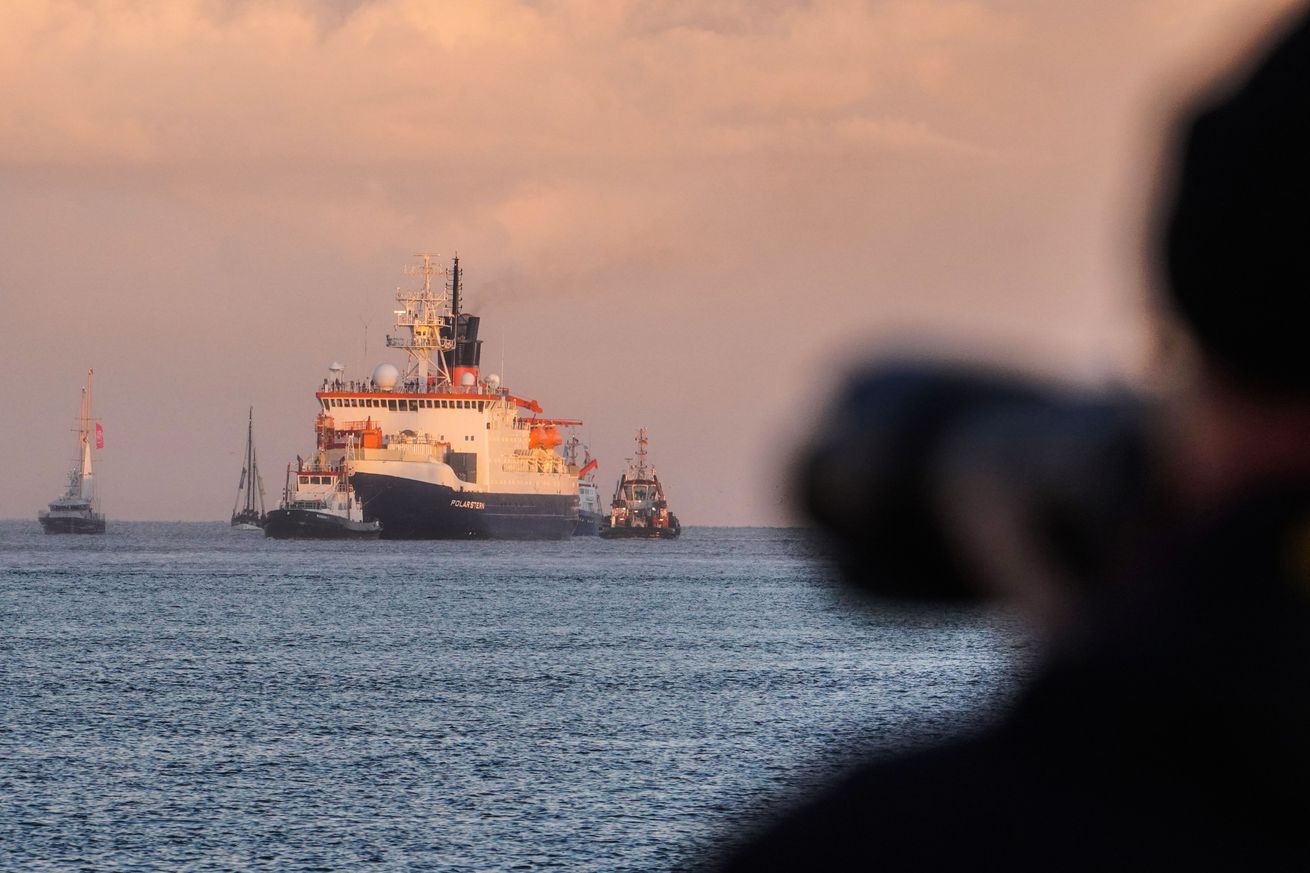A man takes a picture of German icebreaker and research vessel “Polarstern” upon arrival at the harbour of nothern German town of Bremerhaven, on October 12, 2020, after a year-long mission, the biggest Arctic expedition in history, bringing home observations from scientists that sea ice is melting at a “dramatic rate” in the region. – The researchers’ observations have been backed up by US satellite images showing that in 2020, sea ice in the Arctic reached its second-lowest summer minimum on record, after 2012. The Polarstern mission, dubbed MOSAIC, spent 389 days collecting data on the atmosphere, ocean, sea ice and ecosystems to help assess the impact of climate change on the region and the world. (Photo by Patrik Stollarz / AFP) | Photo by PATRIK STOLLARZ/AFP via Getty Images
After taking a hit during the pandemic, the coming months will be a crucial time for ocean research. People rely on data collected at sea for weather forecasts, understanding climate change, and keeping coastal economies afloat. To make that happen, scientists keep track of everything from the temperatures to salinity and oxygen levels in the deep. But the COVID-19 crisis interrupted research around the world, and ocean scientists are trying to recover.
“Overnight, our vessel transformed from a research ship observing a decade’s worth of ocean changes, into a simple express steam home,” Leticia Barbero, an assistant scientist at the University of Miami, said in a June 2020 p…


